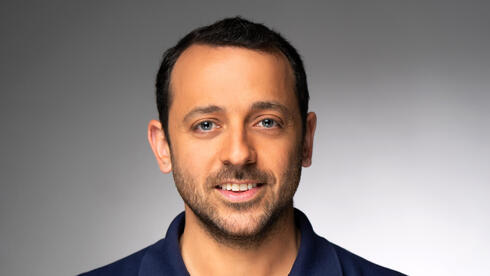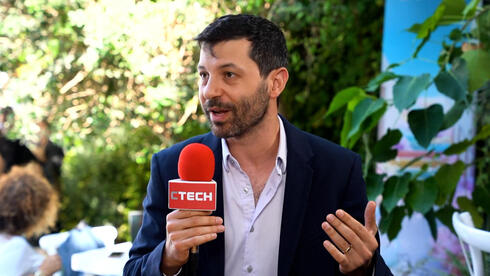
Opinion
We weren't left behind in AI, we were waiting for the main course
"Israel has not missed the AI train. It was simply waiting for the wheels and the engine to be built," writes Yaniv Shnieder, CEO of Elron Ventures.
Everywhere you hear the claim: Israel has missed the train on AI. Israel is not a pioneer, certainly not a leader, and if AI is the future of everything, then a big question mark hangs over the locomotive of our economy. In short: Houston – or Jerusalem – we have a problem. I would like to challenge this view. True, the challenge is significant, and much remains hidden. But if handled correctly, as with previous waves of technological disruption, Israeli DNA can and should contribute real value, carry significant weight, and ultimately lead globally.
Recent developments support this outlook: the Nagel Committee has recommended a national investment of about 25 billion shekels in AI infrastructure, and at the same time, a joint Israel–US fund worth roughly $200 million was announced for AI and quantum R&D. These moves put Israel firmly in the center of the global conversation about the future of technology.
Lately, AI has shaken not only the technology world but also the capital markets. On one hand, global investment firms such as Morgan Stanley estimate AI could add trillions of dollars in market value. On the other hand, OpenAI's CEO Sam Altman warns of a bubble. The picture is still forming. Strong earnings reports and growth are accompanied by market dips, driven by concerns that AI is fundamentally reshaping existing business models. At the same time, a global arms race is underway among technology giants – from Musk and Zuckerberg to Google and Apple – with massive infrastructure investments, such as a new AI factory in North Dakota costing billions. All this leads to one clear conclusion: the real battle is not only about building large models or infrastructure, but about transforming them into practical, focused applications. And there, Israel has a distinct comparative advantage and genuine ability to lead.
Let's begin with what we don't have. Developing massive, algorithmically complex, and training-intensive LLMs is not Israel's strength. Few companies worldwide are capable of projects on this scale, and Israel is not among them. But now that the core models exist, the real competition begins: what to do with them. Most efforts today focus on fine-tuning models or improving performance in limited areas. In a sense, it's more of the same. But the next big leap lies in optimization: efficiency of power use, response times, quality of content, automation, and actionable insights. Here, the Israeli ecosystem has much to offer.
We saw a similar story with cloud computing. Infrastructure came from global providers – mainly American hyperscalers. Yet it's no coincidence they chose to establish R&D centers in Israel to develop the next layers, even before applications emerged. They recognized that when it comes to turning good into excellent – maximizing, optimizing, creating next-generation technologies – Israeli talent is hard to beat. The same dynamic is unfolding in AI: Nvidia's interest in building a huge campus in northern Israel, to employ thousands and become the largest employer in Israeli high-tech, is not by chance.
What technologies lie ahead? One example is cross-modality – smarter integration between text, voice, images, video, and new formats for presenting information. For instance, simple, user-friendly tools for video editing. Another is multimodality, a dual-use vertical that will power the next generation of autonomous tools in civilian and defense domains. This includes human-like actions through data recognition (via sensors, radars, autonomous vehicles), information analysis and autonomous decision-making (the "brain" of the system), and execution (missiles, rudders, robotic arms). These are not shallow, one-off applications of AI, but entire layers that take base models and create custom-built content-frameworks for specific sectors.
What technologies await us? A good example is Cross-modality – smarter links between written/spoken text, visuals, video and new formats for intelligent presentation of content. For example, a simple and convenient tool for editing videos.
Another huge field is AI security – the expanded cyber threats made easier and more accessible through generative AI. This also touches on privacy, intellectual property, and more. For example, how do you create local data lakes that remain closed off externally, yet are as current and relevant as large public models, and can still provide reliable answers? Each of these challenges demands creativity – something Israelis, especially with their cyber expertise, have in abundance.
The potential exists, and much of it will materialize naturally. We already see this in the flood of innovative ideas and proposals Elron reviews each month, many of which spark the imagination. But it also requires a push. First, from organizations: encouraging creativity, breaking rigid hierarchies, bringing diverse teams to the same agile table, enabling them to work with a startup mindset even within large corporations, and investing in innovation even when outcomes may not be immediate. Second, from government: creating a supportive macroeconomic environment for venture capital, and developing human capital in schools, universities, and beyond. A model can be found in Bio-Convergence, which the Israel Innovation Authority is actively promoting. The same should be done in AI, quantum computing, and other frontier technologies.
Israel has not missed the AI train. It was simply waiting for the wheels and the engine to be built – areas where we had little to contribute. Now, we have the opportunity to take the locomotive, pull the wagons, and lead the climb into new frontiers.
Yaniv Shnieder is the CEO of Elron Ventures.















